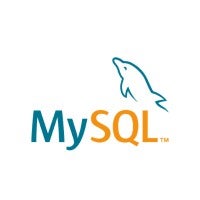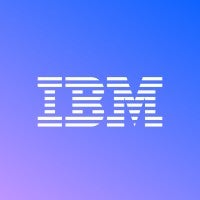A database is an organized collection of structured, semi-structured or unstructured data that makes the process of managing, accessing, retrieving and updating data simple. A database helps store and organize large amounts of data, thereby improving data accessibility.
Database Management Software Overview
- How to Choose DBMS Software
- Top Database Management System Software
- Microsoft SQL
- MySQL
- Oracle Database
- MongoDB
- IBM Db2
- Database Management System Software Compared
Database Management System (DBMS) software acts as an interface between an end user and a database and is designed to allow users to create databases as well as store, manipulate and manage data in an existing database environment. DBMS software should offer these functions:
- Data security
- Access support from remote locations
- Management of users, roles and infrastructure
- Performance optimization to maintain and measure overall efficiency and responsiveness of queries, database structures, etc.
- Automated scripts for executing database changes
- Data recovery support
- Schema maintenance
According to research, we create over 1 trillion MB of data every day! It is evident that enterprises need a secure and efficient data management system. In this guide, you will find all the information you need to choose the best database management software for your needs.
Also read: Best IoT Device Management Platforms & Software 2021
How to Choose DBMS Software
You should consider the following when selecting database management software:
- Data Model: You need to assess the structure of your enterprise data. Do you want to work with a Relational Database Management System (RDBMS) or a NoSQL database system?
RDBMS applications store data in a structured form while NoSQL is a non-relational database system that stores data in structured, semi-structured, and unstructured forms.
You will find a variety of RDBMS software on the market given the long history of relational databases, while NoSQL software is often available as open-source. RDBMS databases are vertically scalable while NoSQL databases allow you to work more freely with unstructured data.
2. Data Consistency: It is important to keep data consistent and define consistency rules. The ability to define these rules should be kept in mind when choosing a new database software.
3. Data Security: A DBMS software should offer vigorous database security. The ability to backup and restore databases and access protection and encryption are essential.
4. Multi-Access and Integration: The ability to allow multiple users to access a database concurrently is a must.
5. Scalability/Efficiency: An enterprise DBMS software of choice should be able to scale to your needs.
6. Total Cost of Ownership (TCO): A clear overview of implementation and service costs will help you choose the right vendor.
Also read: Compare Top Cloud Computing Providers of 2021
Top Database Management System Software
We have prepared detailed reviews of each solution. Read on to discover all you should know about the best DBMS software.
Microsoft SQL
Microsoft SQL Server 2019 allows you to query and analyze structured and unstructured data with industry-leading security and performance. The unified data platform comes with integrated Hadoop Distributed File System (HDFS), Apache Spark, and analytics tools for intelligence over all of your data.
Microsoft SQL Server 2019 brings machine learning (ML) to database engines and the edge for better security and faster predictions. With an industry-leading TCO, you can scale your business while trusting that your performance, availability, and security needs are covered.
Key Differentiators
- Query and analyze structured, unstructured, relational and non-relational data with built-in Apache Spark.
- Easily manage your big data environment with SQL Server 2019 Big Data Clusters.
- Run SQL Server 2019 on Windows or Linux containers with Kubernetes.
- Take advantage of breakthrough performance and scalability to improve the response time and stability of your database.
- Provides built-in features for data classification, monitoring and alerts, and data protection.
- Make faster and better decisions with SQL Server Reporting Services.
- Pricing: The Microsoft SQL Server 2019 Enterprise edition 2-core pack costs $13,748. A SQL Server 2019 Enterprise edition 2-core pack add-on will cost you $5,434/year.
MySQL

MySQL Enterprise Edition is an RDBMS software that includes advanced management tools, features, and technical support to achieve high levels of MySQL security, reliability, scalability and uptime. The database management software reduces the cost, complexity and risk of deploying, managing, and developing business-critical MySQL applications.
Key Differentiators
- The package includes MySQL Database Service, Oracle MySQL Cloud Service, MySQL Enterprise Backup, MySQL Enterprise Scalability, MySQL Enterprise Firewall, MySQL Enterprise Security, MySQL Enterprise High Availability, MySQL Enterprise Encryption, Oracle Premier Support for MySQL and much more.
- MySQL Database Service, a fully-managed database service to deploy cloud-native applications, is built on MySQL Enterprise Edition. It comes with an integrated in-memory query accelerator called HeatWave that accelerates the performance of MySQL by 400 times.
MySQL Database Service also offers self-healing replication clusters, native HA, native JSON support, performance schema and platform interoperability.
- Oracle MySQL Cloud Service provides management tools to automate backup and recovery, provisioning, patching and monitoring and tuning. The service also helps increase business agility and reduce TCO.
- MySQL Enterprise Backup delivers online backups of your databases to reduce the risk of data loss.
- MySQL Enterprise Scalability helps you meet the sustained scalability and performance requirements associated with ever-increasing user, query and data loads.
- MySQL Enterprise Firewall offers real-time threat monitoring, blocks suspicious traffic, learns and builds whitelists and offers transparent protection.
- Pricing: MySQL Enterprise Edition is available for $5,000 annually.
Oracle Database

Running on Oracle Cloud, Oracle Database 21c, an RDBMS software, features a plethora of data-centric enhancements when compared to Oracle’s older flagship database management systems, including native binary JSON document support, in-memory graph analysis capabilities, in-database JavaScript execution and blockchain tables.
With the inclusion of automated ML (AutoML), Oracle Database 21c incorporates advanced analytics and data mining capabilities, featuring over 50 statistical functions, including regression and classification.
Key Differentiators
- Oracle Database 21c is a cross-platform RDBMS software that offers high data availability (clustering), business intelligence and backup and recovery.
- By embedding ML within the database itself, AutoML helps streamline data access, cuts down on data latency, bypasses memory limitation issues, enhances performance and limits security vulnerabilities.
- Oracle Database 21c supports online transaction processing (OLTP), online analytical processing (OLAP), ML, Internet of Things (IoT), streaming and blockchain workloads.
- Native binary JSON document support enables faster scans and update operations.
- In-database JavaScript execution eliminates expensive network round trips and enables developers to work efficiently in modern languages.
- Persistent memory (PMEM) support can enhance the performance of I/O-bound workloads.
- Sharding automation delivers hyperscale performance and availability.
- Pricing: Oracle Database 21c is available on Oracle’s free tier of Oracle Autonomous Database with limited CPU and storage capacity. The software will be available more broadly in the latter stages of 2021, including on-premises.
MongoDB

MongoDB Enterprise Advanced is a NoSQL software that features the most complete support and the best service-level agreement (SLA) when you run MongoDB yourself.
The subscription includes MongoDB Enterprise Server, advanced analytics and data visualization, comprehensive operational tooling and security controls, on-demand training for your teams, and platform integrations and certification.
Key Differentiators
- Extensive consultative support around the clock, including suggestions on how to configure your system for high scalability and availability, performance optimization tips, validation of a deployment plan, and more.
- Ops Manager and Cloud Manager provide complete lifecycle management of your MongoDB databases, operational task automation and a backup solution with point-in-time recovery.
- Kubernetes integration gives you complete control over your deployment from one Kubernetes control plane. It offers a consistent management and automation experience anywhere from the cloud to on-premises infrastructure.
- MongoDB Advanced Security enables you to detect, defend, and control access to your databases.
- MongoDB In-Memory Storage Engine delivers predictable low latency and high throughput for workloads with stringent response-time SLAs.
- On-demand training according to your convenience.
- Pricing: Contact MongoDB for pricing details.
IBM Db2

IBM Db2 Database on IBM Cloud Pak for Data is a flexible, enterprise-ready data management foundation that is powered by AI and built on the scalable, security-rich Red Hat OpenShift foundation. You can enhance agility by running IBM Db2 on any cloud vendor, cut costs with the solution’s multimodal capability that eradicates the need for migration and data replication and derive insights with ML embedded into query processing.
Key Differentiators
- With a containerized version of Db2, IBM Db2 on IBM Cloud Pak for Data modernizes data management and helps you expedite insights from multiplying data while managing resources and costs.
- Choose your deployment model, be it on IBM Cloud Pak for Data, on-premises on Windows, Linux or Unix, on cloud or on-premises on IBM Z.
- The RDBMS software is enterprise-ready, developer-ready, cost-effective and resilient and consumable.
- The database software offers elastic scaling up to 128 machines in hybrid and multi-cloud environments.
- IBM Db2 Database offers advanced protection, continuous availability and automated administration and tuning.
- The database management software supports multiple data types and languages, including JSON, NoSQL, pureXML, Graph, Java, .Net, Ruby Perl and Python.
- Pricing: Reach out to the IBM team for pricing information.
Database Management System Software Compared
Here is how the DBMS software compare:
|
Features |
Microsoft SQL |
MySQL |
Oracle Database |
MongoDB |
IBM Db2 |
|
Meets Requirements |
|
|
|||
|
Ease of Use |
|
||||
|
Ease of Set-Up |
|
||||
|
Ease of Administration |
|
|
|||
|
Ease of Doing Business With |
|
||||
|
Quality of Service and Support |
|
||||
|
Product Direction |
|
Microsoft SQL Server 2019 is a comprehensive database management software that allows you to query and analyze structured and unstructured data. The solution meets requirements and offers great ease of administration. In terms of overall features, ease of use, ease of set-up and ease of administration, there is no beating MySQL Enterprise Edition.
Oracle Database 21c too meets requirements and is one for the present and the future. If you are looking for a NoSQL software solution, MongoDB Enterprise Advanced is the best option. MongoDB Enterprise Advanced offers the highest quality of service and support.
Analyze each DBMS software solution and opt for the one that best meets your business requirements.
Read next: Best Data Warehouse Software & Tools 2021
The post Best Database Management Software 2021 appeared first on IT Business Edge.















